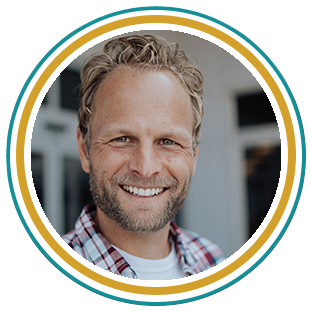Many fathers (and mothers, too—this is an issue that warps all parent-child relationships) are simply awful to their children—which means that Jesus’ words about God’s “fatherhood” (or any invocation of “parenthood” applied to God) are not easy pills to swallow. Maybe that’s you. Maybe your parents were abusive, or distant, or aloof, and your relationship, if you have one at all, is unhealthy, conflicted, or worse—severed completely. There’s a part of you that recoils from the idea of relating to God as “father” because the parent figures in your life were such a disaster.
I cannot tell you how many times as a pastor I have sat with men and women of all ages who chart the beginning of their life’s issues with “Well, my dad . . .” or, “Well, my mom . . .” The relationship, for better or for worse, is a vestigia trinitatis. There’s no getting around it. When it breaks down, we spin.
And yet, for as many of those stories as I’ve heard, for as much anger and bitterness as I’ve seen, I’ve also observed that the deepest parts of us ache for the blessing of father and mother. Maybe that’s you too. When you gaze into the relationship between Jesus and his Father, there is a powerful and ineffaceable part of you that longs to find your place in that perfection. You are desperate to know what Jesus knew.
When you gaze into the relationship between Jesus and his Father, there is a powerful and ineffaceable part of you that longs to find your place in that perfection.
Now—full disclosure here—let me just say that I’ve been blessed in my own life to come from a long line of great dads. On the Arndt side of the family, I am the fifth in an unbroken series of firstborn sons. My own oldest son, Ethan, is the sixth. Herman Arndt, Martin Arndt, James Arndt, William Arndt, Andrew Arndt, and Ethan Arndt. A great deal of my own sense of identity comes from the fact that I have a place in that line of those good, decent, godly men. In fact, on my desk I have a picture of myself with my Grandpa Jim—me, a toothy, beaming six-year-old, leaning back against his chest, with his massive arm around me. It reminds me that I come from somewhere, that I have a name, a place, and identity. I am an Arndt.
Part of the process of spiritual maturity is coming to grips with all of the places in which our family heritage is not and could never be enough.
But here’s the thing—being an “Arndt” who comes from this line of good men is not enough. I’m not saying that theoretically, either. I’m saying it experientially. Part of the process of spiritual maturity is coming to grips with all of the places in which our family heritage is not and could never be enough. It is learning to recognize where character flaws have been passed on from generation to generation, where sin-stained perceptions of the world have been encoded in our understanding of reality, where things you took for granted as “normal” are—on further review—out of sync with the Kingdom of God. As it turns out, we cannot live by vestiges alone.
You’ve been reading from Andrew Arndt’s book, All Flame. Do you struggle with seasons of divine obscurity? Here is a powerful book on how to experience the Trinity—vivid and accessible.



